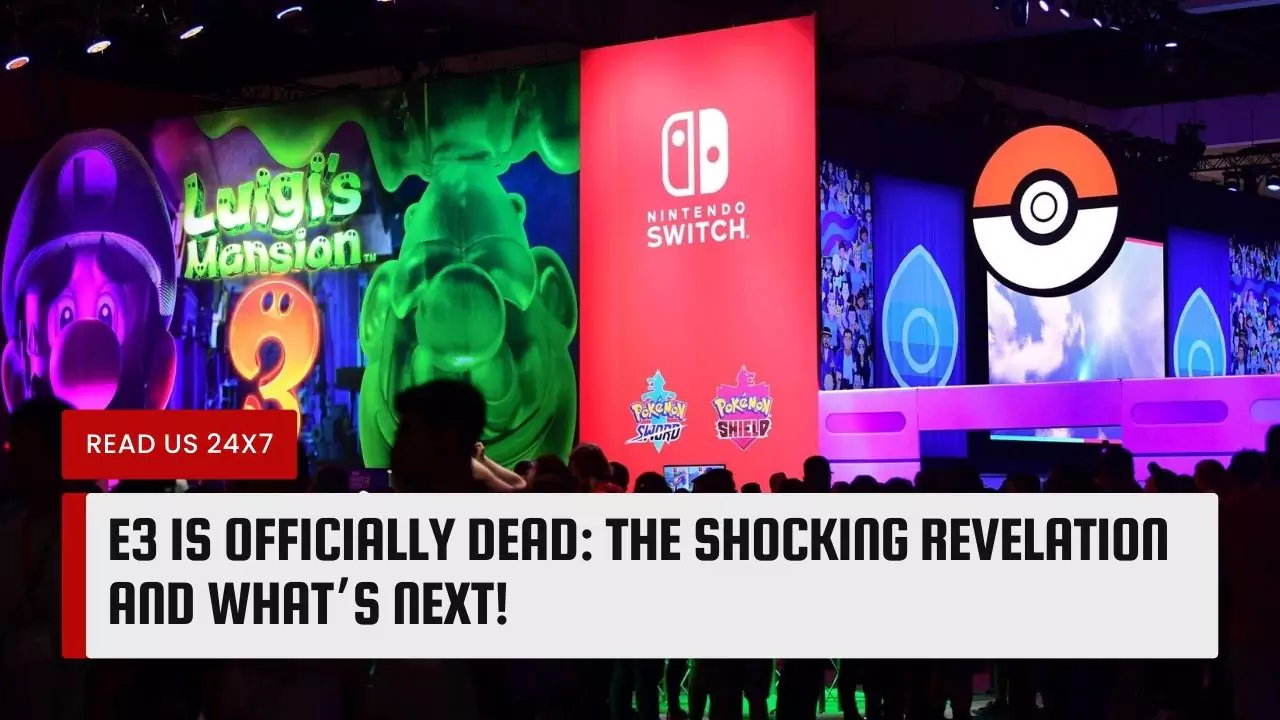E3, the Electronic Entertainment Expo, was once the most anticipated and influential event in the gaming industry. Every year, thousands of fans, journalists, developers, and publishers flock to Los Angeles to witness the latest announcements, demos, and trailers of upcoming games and consoles. However, after years of declining relevance, attendance, and quality, E3 has finally met its end.
The Entertainment Software Association (ESA), the organizer of E3, has announced that it will no longer host the annual show, citing the challenges of adapting to the changing industry landscape. What does this mean for the future of gaming, and what will fill the void left by E3?
The Rise and Fall of E3 as a Premier Industry Event
E3 was first held in 1995 and quickly became the most important event for the gaming industry. It was the place where major companies like Nintendo, Sony, and Microsoft would showcase their new hardware and software, and where smaller developers and publishers would get exposure and feedback from the media and the public. E3 was also a cultural phenomenon, attracting celebrities, influencers, and enthusiasts from around the world. Some of the most memorable moments in gaming history happened at E3, such as the reveal of the Nintendo 64, the PlayStation 3, and the Xbox 360.
However, in recent years, E3 has lost much of its appeal and significance. One of the main reasons is the rise of direct online marketing and distribution, which made the annual show unnecessary and inefficient. Companies like Nintendo, Sony, and Microsoft started to host their own online events, such as Nintendo Direct, PlayStation State of Play, and Xbox Inside, where they could communicate directly with their fans and customers, without the need for a physical venue, a fixed schedule, or a middleman. These online events also allowed them to control the timing, the content, and the message of their announcements, and to avoid the competition and the noise of E3.
Another reason for E3’s downfall is the shifting nature of the console war, which used to be the main attraction of the show. In the past, E3 was the battleground where Nintendo, Sony, and Microsoft would compete for the attention and the loyalty of the gamers, by revealing their new consoles, exclusive games, and innovative features. However, as the console market became more saturated and homogeneous, the differences between the platforms became less significant and more subtle. Moreover, the console war itself became less relevant, as the gaming industry expanded to other platforms, such as mobile, PC, and cloud gaming, which offered more diversity, accessibility, and affordability to the gamers.
Announcement of E3’s Permanent Cancellation
The final nail in the coffin for E3 came in 2020 when the COVID-19 pandemic forced the cancellation of the show for the first time in its history. Although the ESA initially planned to hold a digital version of E3 in 2020, and later in 2021, it failed to materialize, due to the lack of interest and support from the major companies and the gaming community. Instead, many alternative online events emerged, such as the Summer Game Fest, the Future Games Show, and the IGN Expo, which offered more variety, flexibility, and quality to gamers and the industry.
On December 12, 2023, the ESA officially announced that it will no longer host E3 and that it will focus on other initiatives and services for the gaming industry. In a statement, ESA CEO Stanley Pierre-Louis said:
“We are grateful for the 28 years of E3, and for the passion and enthusiasm of the gaming community that made it possible. However, we recognize that the industry has evolved, and that E3 is no longer the best way to serve our members and our fans. We have decided to end E3 as an annual event, and to explore new ways to support and celebrate the gaming industry in the future.”
Pierre-Louis also admitted that the ESA faced difficulties in adapting to the changing industry landscape and that it could not compete with the online events that offered more convenience, customization, and interactivity to gamers and the industry.
Impact of E3’s Demise
The announcement of E3’s permanent cancellation has sparked mixed reactions from the gaming community. On one hand, many gamers and industry professionals expressed sadness and nostalgia for the end of E3, which was a tradition and a spectacle for them. They recalled the excitement, the surprises, and the fun of watching and attending E3, and the impact that it had on their gaming experiences and careers. They also lamented the loss of a common platform and a social event that brought together the gaming industry and the gaming community.
On the other hand, many gamers and industry professionals also acknowledged the decline and the irrelevance of E3 and welcomed the opportunities and the benefits of the alternative events and platforms that replaced it. They praised the diversity, quality, and innovation of the online events that offered more choices, more information, and more engagement to the gamers and the industry. They also appreciated the convenience, flexibility, and accessibility of the online platforms that allowed them to enjoy gaming anytime, anywhere, and on any device.
E3 is officially dead, but gaming is alive and well. The gaming industry and the gaming community will continue to grow, to change, and to create new ways to celebrate and enjoy gaming, without the need for a single, centralized, and outdated event. E3 may be gone, but gaming will go on.


